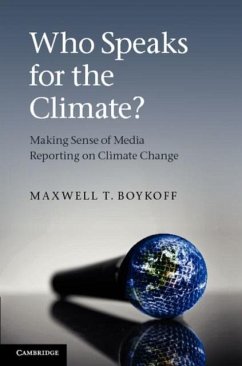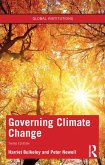The public rely upon media representations to help interpret and make sense of the many complexities relating to climate science and governance. Media representations of climate issues - from news to entertainment - are powerful and important links between people's everyday realities and experiences, and the ways in which they are discussed by scientists, policymakers and public actors. A dynamic mix of influences - from internal workings of mass media such as journalistic norms, to external political, economic, cultural and social factors - shape what becomes a climate 'story'. Providing a bridge between academic considerations and real world developments, this book helps students, academic researchers and interested members of the public make sense of media reporting on climate change as it explores 'who speaks for climate' and what effects this may have on the spectrum of possible responses to contemporary climate challenges.
Dieser Download kann aus rechtlichen Gründen nur mit Rechnungsadresse in A, B, BG, CY, CZ, D, DK, EW, E, FIN, F, GR, HR, H, IRL, I, LT, L, LR, M, NL, PL, P, R, S, SLO, SK ausgeliefert werden.









